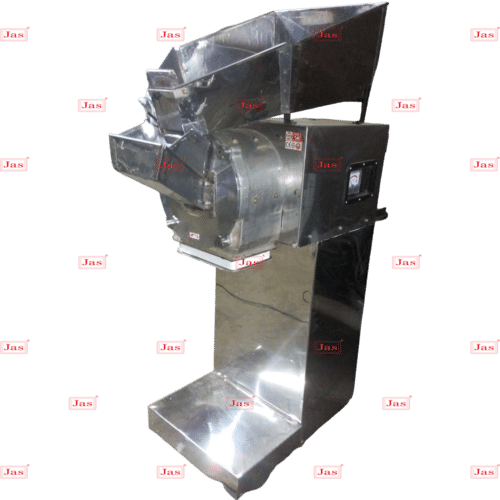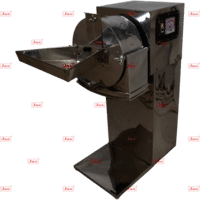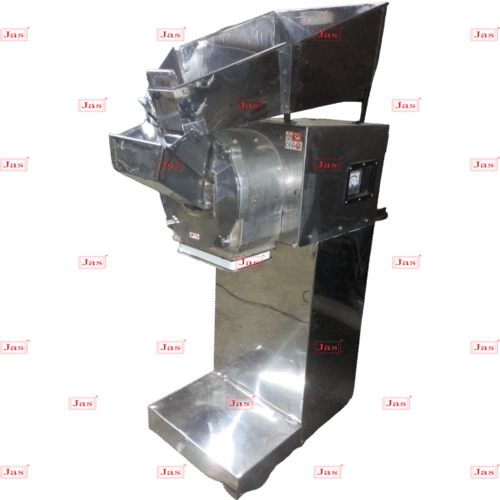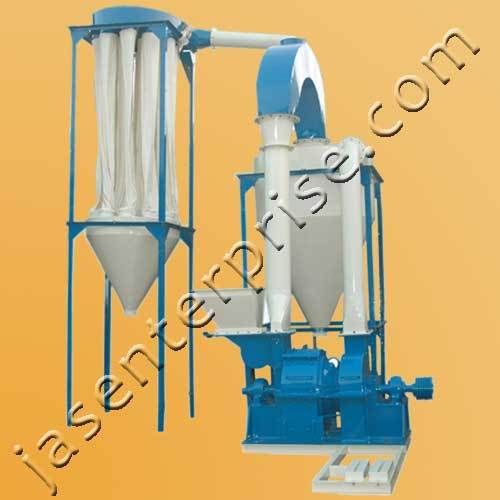Turmeric Processing Plant
56000 INR/Unit
Product Details:
- Capacity 30-160 Kg/hr
- Automatic Yes
- Voltage 230/440 Volt (v)
- Feature High Performance ECO Friendly Low Noise Lower Energy Consumption High Efficiency
- Click to View more
X
Turmeric Processing Plant Price And Quantity
- 56000.00 - 301000.00 INR/Unit
- 1 Unit
- 56000 INR/Unit
Turmeric Processing Plant Product Specifications
- High Performance ECO Friendly Low Noise Lower Energy Consumption High Efficiency
- Yes
- 30-160 Kg/hr
- 230/440 Volt (v)
Turmeric Processing Plant Trade Information
- Cash Against Delivery (CAD) Cash Advance (CA) Cash in Advance (CID) Cheque Western Union
- Central America North America South America Eastern Europe Western Europe Middle East Africa Asia Australia
- All India South India Central India West India North India East India Gujarat Karnataka Kerala Lakshadweep Mizoram Meghalaya Manipur Andhra Pradesh Bihar Chandigarh Daman and Diu Goa Jharkhand Odisha Punjab Assam Delhi Dadra and Nagar Haveli Andaman and Nicobar Islands Arunachal Pradesh Chhattisgarh Haryana Himachal Pradesh Jammu and Kashmir Madhya Pradesh Maharashtra Nagaland Rajasthan Sikkim Tamil Nadu Telangana Tripura Pondicherry Uttar Pradesh Uttarakhand West Bengal
- ISO
Product Description
1. Raw Material Procurement
- Selection and Quality Control: High-quality turmeric rhizomes are selected based on factors like color, size, and freshness. Quality control ensures the raw material meets the required standards.
2. Cleaning
- Washing: The turmeric rhizomes are thoroughly washed to remove dirt, soil, and impurities. This can be done using water and sometimes with mild detergents.
3. Boiling or Steaming
- Boiling/Steaming: The cleaned rhizomes are boiled or steamed to soften them, which helps in the drying process and reduces the likelihood of fungal contamination. Steaming is often preferred for better color retention.
4. Drying
- Drying Methods: The boiled or steamed rhizomes are dried using various methods:
- Sun Drying: Traditional method where rhizomes are spread out in the sun.
- Mechanical Drying: Use of dryers or ovens for more controlled and faster drying.
5. Polishing
- Cleaning and Polishing: Dried rhizomes are polished to remove the outer skin and any remaining dirt. This step enhances the appearance and quality of the final product.
6. Grinding
- Milling/Grinding: The dried and polished rhizomes are ground into a fine powder. This powder can be used as turmeric spice or for extraction purposes.
7. Sifting
- Sieving: The ground turmeric is sifted to ensure a uniform particle size and to remove any larger, unwanted particles.
8. Quality Control
- Testing: The turmeric powder undergoes quality control tests for factors such as color, flavor, and purity. Tests may also be conducted for microbial contamination and heavy metal residues.
9. Packaging
- Packaging: The processed turmeric is packaged in moisture-proof and airtight containers to maintain freshness and prevent contamination. Packaging can be done in bulk or retail-sized packages.
10. Storage and Distribution
- Storage: Finished products are stored in a controlled environment to preserve quality.
- Distribution: The packaged turmeric is then distributed to retailers, wholesalers, or directly to consumers.
Tell us about your requirement

Price:
Quantity
Select Unit
- 50
- 100
- 200
- 250
- 500
- 1000+
Additional detail
Mobile number
Email









 Send Inquiry
Send Inquiry Send SMS
Send SMS Call Me Free
Call Me Free